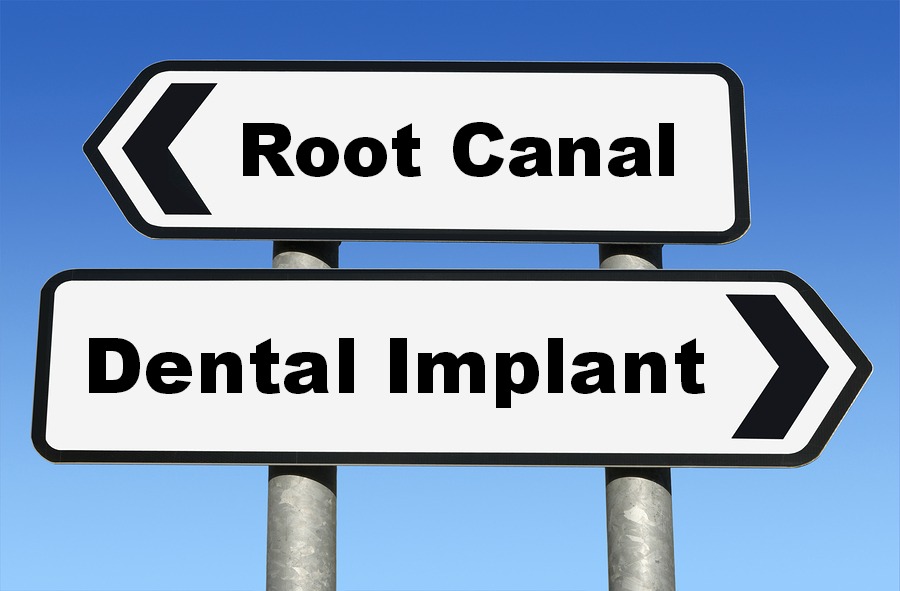
by Dr. Jacqueline S. Allen | May 5, 2014 | Blog, Endodontics, Root Canal
 Most people do have to face the fact that at some point in their life, they will have a tooth that “goes bad”, starts to cause pain and will need to have treatment to make it better. More often than not, a root canal can be performed and gives the patient many years of enjoyment free of pain and discomfort.
Most people do have to face the fact that at some point in their life, they will have a tooth that “goes bad”, starts to cause pain and will need to have treatment to make it better. More often than not, a root canal can be performed and gives the patient many years of enjoyment free of pain and discomfort.
Even though a root canal is a great option for infected or abscessed teeth there may come a point where the patient considers a dental implant as a treatment option. The use of dental implants as a valid option has exploded in the last 10 years. Initially it was touted that extracting a tooth and placing an implant was a “permanent solution.” Studies have shown that implants can and do fail and are far from a permanent solution to tooth pain.
A common debate is “root canal vs. dental implant”, which is best for the patient?
As with many dental questions, there is no one right answer to this question, it depends upon many factors, patient’s age, overall health, opposing tooth and cost. Root canal cost v. implant cost is what we will probe in this article. In general terms, a single tooth implant will cost significantly more than a root canal. Let’s use a molar tooth in this example.
The root canal cost breaks down as follows: Exam, x-ray, root canal, buildup, crown. For a tooth to be fully restored after a root canal, it can take as few as two weeks.
The dental implant cost breaks down as follows: Exam, x-ray, extraction, bone graft, implant surgery, healing abutment and crown. Some dental implants can be placed immediately after extraction, however most of the time the extraction site has to heal for up to six months and the patient uses a stay plate or flipper to fill in the hole. A dental implant is a surgical procedure and the healing time for each patient can vary.
Here are the costs side by side, using the Usual and Customary Fees in the Phoenix, AZ area for endodontists and periodontists for a molar tooth:

There are a lot of variables regarding both procedures, and the example above shows what the costs could be if you needed all of the services listed. The costs shown are representative of the root canal cost and dental implant cost and services in our market. As mentioned above, neither dental implants or root canal treatment will last forever. Before making a treatment choice, a patient should weigh all of the factors involved, speak with their general dentist and endodontist in order to make the most informed decision based on the individual.
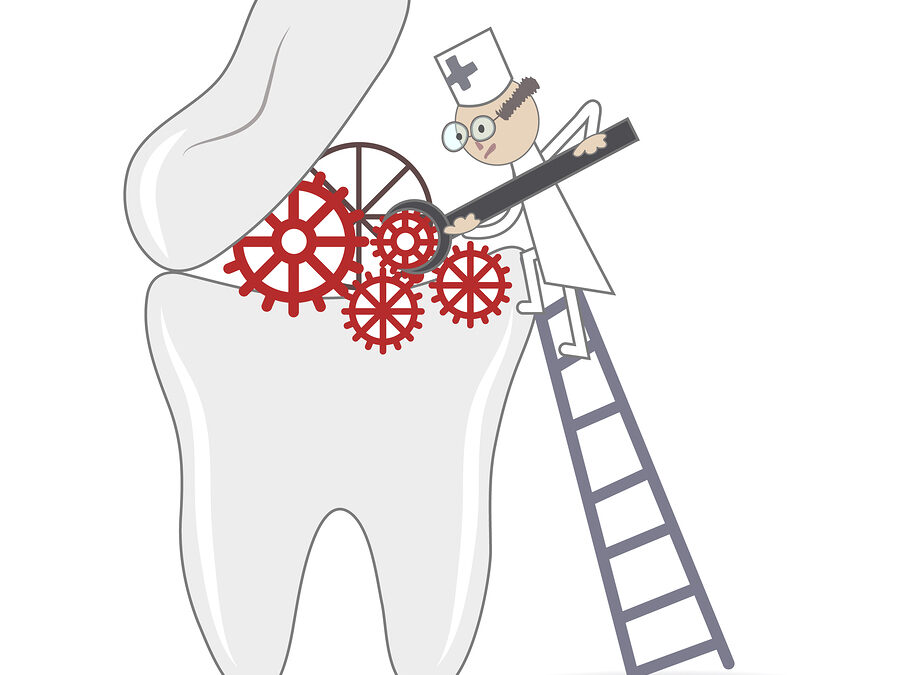
by Dr. Jacqueline S. Allen | Mar 17, 2014 | Blog, Dentistry, Root Canal
Sometimes when an endodontic patient hears the phrase “root canal,” it strikes fear into their very heart. Today’s procedures are nothing to be afraid of, especially for patients of Phoenix Endodontic Group.
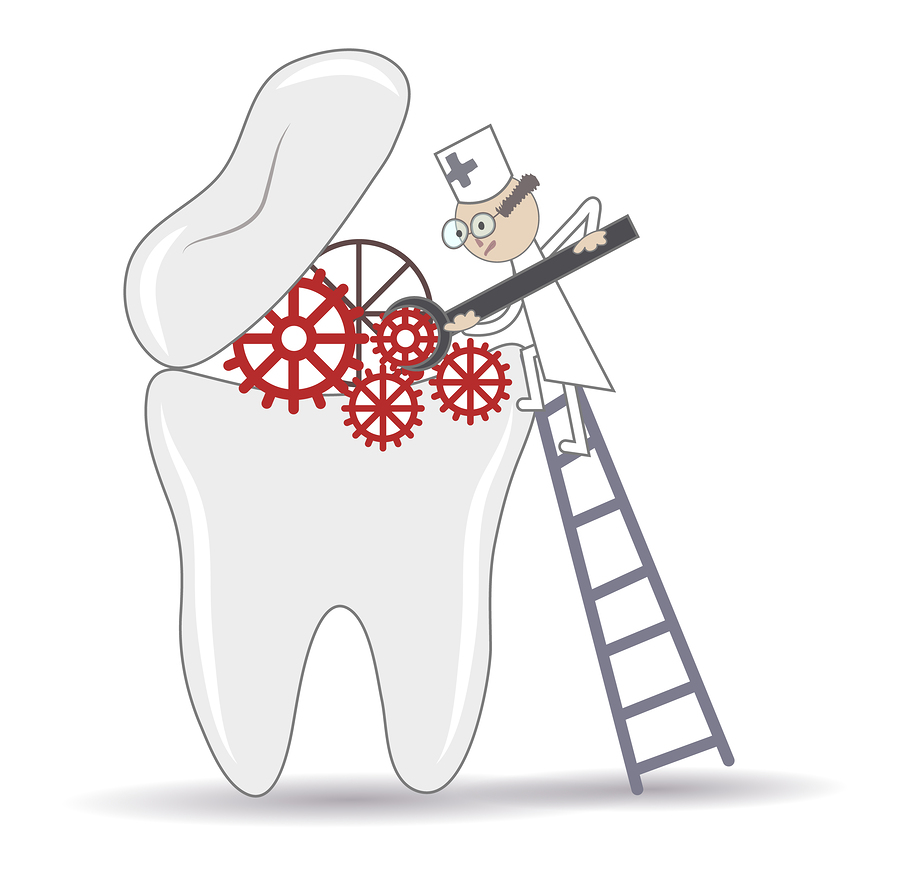 During a root canal, the innermost part of the tooth is removed, cleaned, and filled. Finally, a crown will be set in place to finish it off and create a strong new tooth. The procedure typically takes anywhere from 45 minutes to two hours total, depending on how badly the tooth is damaged and how much repair must be done. Your endodontist will take great care to make sure you don’t feel any discomfort while the procedure is taking place and to help you with any anxiety you might have.
During a root canal, the innermost part of the tooth is removed, cleaned, and filled. Finally, a crown will be set in place to finish it off and create a strong new tooth. The procedure typically takes anywhere from 45 minutes to two hours total, depending on how badly the tooth is damaged and how much repair must be done. Your endodontist will take great care to make sure you don’t feel any discomfort while the procedure is taking place and to help you with any anxiety you might have.
According to Dr. Jacqueline Allen, when asking patients about their pain level on a scale of one to ten, the majority of patients would report a pain level of “three, after 48 hours, all teeth treated with a root canal should be completely pain free between 5 to 7 days after the procedure.” She goes on to note that “Some patients come to us with acute discomfort due to infection (waiting too long), in that case the healing process may take a little longer.”
After your root canal is complete, any pain that you do feel can be treated with the use of ibuprofen taken consistently for the first couple of days. For patients with more complicated cases and have higher pain levels, “prescription for a pain reliever can be prescribed to break the cycle of pain.” Dr. Allen also mentions a drug-free way of handling post-procedure pain: “A cold compress 15 minutes on and 15 minutes off will help ease swelling and discomfort.”
Most patients find the mild discomfort of a root canal to be very temporary, and are so pleased with the result that they soon forget about any brief moments of discomfort they may have felt. With Dr. Allen of Phoenix Endodontic Group helping you, all you’ll notice is your beautifully restored and pain-free tooth!

by Dr. Jacqueline S. Allen | Mar 10, 2014 | Blog, Endodontics, Root Canal
 You may have heard of a root canal, but what do you know about the procedure? The purpose of Root Canal Awareness Week (March 30 – April 5, 2014) is to dispel the myths and mysteries surrounding this endodontic tool. Here’s what you should know about the process.
You may have heard of a root canal, but what do you know about the procedure? The purpose of Root Canal Awareness Week (March 30 – April 5, 2014) is to dispel the myths and mysteries surrounding this endodontic tool. Here’s what you should know about the process.
Let’s first understand a tooth’s structure, the crowns of the teeth are the part you use to chew, eat, and flash your sparkling smile. The crowns are covered by an enamel surface that must withstand the torture of hard candy, hot coffee, and cheeseburgers. Within the tooth is a soft material known as pulp where nerves, tissues, and blood vessels reside. Finally, the root is the part that extends towards your jawbone and is covered by your gums.
The tooth’s root or pulp can be damaged by many things. A small chip or crack in the enamel may allow bacteria to invade and destroy the tooth from within. Trauma from an accident is another common way the tooth can be destroyed. Decades ago, many people would lose teeth from these incidents. With today’s endodontic technology, most of those patients can now keep those troubled teeth after an expert root canal.
During the procedure, the area would be numbed so that you will not feel pain. The infected pulp is removed and the interior of the tooth is thoroughly cleaned, then filled and finally sealed. The result is a wonderful new tooth that looks and feels great. Dr. Jacqueline S. Allen of Phoenix Endodontic Group says “Brushing, flossing and regular dental checkups will help keep a patient’s mouth healthy after a root canal. Preventing decay is the key to having a root canal last a long time. Avoiding situations which put a tooth at risk for breaking will help also, i.e. chewing ice, sports injuries, etc.”
Most patients report minimal pain as a result of a root canal, comparing it to getting a filling. To reduce your risk of needing a root canal for an issue not related to trauma, “Brushing, flossing, fluoride, and regular dental checkups are effective,” says Dr. Allen.

by Dr. Jacqueline S. Allen | Feb 19, 2014 | Blog, Endodontics, General Information, Root Canal
Patients will often call Phoenix Endodontic Group and ask what appears to be a very simple question -How much does a root canal cost? Like I said this seems like a simple question, however there a so many factors involved in providing an answer that most dental offices do not like to take these kinds of calls.
 For one thing, most times you have no way of knowing who is asking the question. Today’s miserable economic conditions have many patients focusing only on the cost (of whatever service). If your price for the root canal is $1.00 higher than someone else, the patient will drive 30 extra miles just to save a dollar on the root canal. I may be exaggerating a little, however sometimes I have to shake my head at the logic I witness.
For one thing, most times you have no way of knowing who is asking the question. Today’s miserable economic conditions have many patients focusing only on the cost (of whatever service). If your price for the root canal is $1.00 higher than someone else, the patient will drive 30 extra miles just to save a dollar on the root canal. I may be exaggerating a little, however sometimes I have to shake my head at the logic I witness.
Before we give an answer as to what is the cost of a root canal, my staff is trained to get some additional information. Here is just a short list of what else we need to know before we quote a price over the phone: Are you in pain?, Has the tooth had a prior root canal?, if so how long ago?, Do you have dental insurance?, if so with whom? Does the tooth have a crown?, if so how long ago was it placed?, Which tooth needs a root canal?, Who is your general dentist?, and did they refer you to our office?
I will stop there, but you can tell that in order to provide an accurate treatment cost, the endodontic office needs to have some information on which to base our answer. It is similar to calling up Discount Tire and asking them how much it costs for tires on your car. They will need to know what type of car you have, how old it is, what type of tires it has currently, etc. Whether it is tires or a tooth, diagnosing over the phone is never a good idea.
The other challenge when providing a quote over the phone to a patient is to be sure there is an “apples to apples” comparison. In order be sure you are talking about the same services it is helpful to know the three elements go into the root canal cost. They are as follows:
1) Exam and x-rays (if a dentist provides treatment, they are legally required to diagnose from x-rays they have taken themselves)
2) Root Canal procedure (the cost varies depending on which tooth needs treatment, molars being the most expensive)
3) Post/Core buildup (this seals up the access hole and allows for further restoration, crown etc. A lot of general dentists insist on doing their own buildups)
To further complicate the price quote is that if the patient has insurance and the treatment is completed in one visit, the insurance company may have limits on billing for all of the required x-rays. Additionally each endodontic office may offer different discounts and incentives, i.e. senior citizen or active duty military discount, professional courtesy, etc. At Phoenix Endodontic Group, we have our own discount program that is utilized based up on the individual needs of our patients.
Having gotten the disclaimers out of the way, I can now attempt to answer the specific question posed, How much does a root canal cost? If we go by dental insurance companies, they use a fee schedule which is broken down by zip code and dental procedure code for a molar root canal. The data is broken down from lowest to highest. I will use data from 2012 in the 85013 zip code. Here we go:
D0140 (Exam) $68.00 – $105.00
D0220 (X-ray) $27.00 – $ 37.00
D3330 (Molar Endo) $953.00 – $1,305.00
D2950 (Core Build) $248.00 – $347.00
Much more to come on this and related topics in future blog posts!
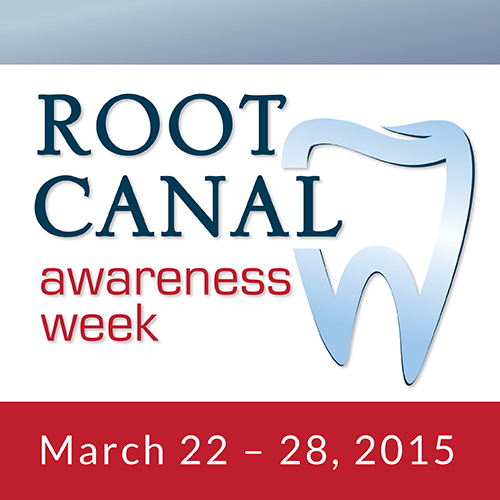
by Dr. Jacqueline S. Allen | Mar 6, 2013 | Blog, Dentistry, Endodontics, General Information, Phoenix Endodontic Group, Root Canal
 Please join the American Association of Endodontists in celebration of the seventh annual Root Canal Awareness Week
Please join the American Association of Endodontists in celebration of the seventh annual Root Canal Awareness Week

In celebration of upcoming Root Canal Awareness Week (March 17 – 23, 2013) Allen Endodontic Group would like to explain the important role endodontists play in dental health, and to teach the public that root canals should not be feared. What better way to do this than give some facts regarding endodontists and root canals.
Endodontists are dentists with special training in diagnosing and treating oral and facial pain, and problems associated with the inside of the tooth.
Endodontists must complete four years of dental school plus two or more years of advanced training in endodontics.

Patients may need endodontic treatment, including root canals, if they experience any of the following symptoms:
- prolonged dental sensitivity to heat or cold;
- tenderness of teeth to touch and chewing; or
- facial or oral swelling.

Root canal treatment is needed when the pulp (the soft tissue inside the tooth) becomes inflamed or infected as a result of injury, deep decay, repeated dental procedures on the tooth, or a cracked or chipped tooth.
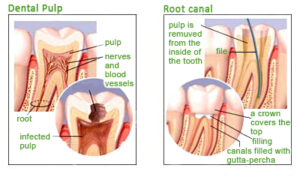
Most patients who have had a root canal performed by an endodontist describe the procedure as virtually painless.

Eighty-five percent (85%) of patients who have had a root canal performed by an endodontist would return to an endodontist for future work.

Call the Allen Endodontic Group, located in Phoenix and Paradise Valley, AZ if you have any questions about the health of your teeth or if you think you need a root canal. 602-242-4745 or www.phoenixendodontist.com.


by Dr. Jacqueline S. Allen | Apr 21, 2012 | Blog, Dentistry, General Information, Phoenix Endodontic Group, Root Canal
Fear of the dentist is a common among the non-dental population, it is something that we confront and work with on a daily basis. Having come to expect that certain patients may be truly afraid of making an appointment to have a
root canal has made us better equipped to deal with these fears.
I have heard somewhere along the line that patients have 3 major fears about going to the dentist: time, money, and pain. Let’s look at each of these separately.
Time

 Most people do have to face the fact that at some point in their life, they will have a tooth that “goes bad”, starts to cause pain and will need to have treatment to make it better. More often than not, a root canal can be performed and gives the patient many years of enjoyment free of pain and discomfort.
Most people do have to face the fact that at some point in their life, they will have a tooth that “goes bad”, starts to cause pain and will need to have treatment to make it better. More often than not, a root canal can be performed and gives the patient many years of enjoyment free of pain and discomfort.


 During a root canal, the innermost part of the tooth is removed, cleaned, and filled. Finally, a crown will be set in place to finish it off and create a strong new tooth. The procedure typically takes anywhere from 45 minutes to two hours total, depending on how badly the tooth is damaged and how much repair must be done. Your endodontist will take great care to make sure you don’t feel any discomfort while the procedure is taking place and to help you with any anxiety you might have.
During a root canal, the innermost part of the tooth is removed, cleaned, and filled. Finally, a crown will be set in place to finish it off and create a strong new tooth. The procedure typically takes anywhere from 45 minutes to two hours total, depending on how badly the tooth is damaged and how much repair must be done. Your endodontist will take great care to make sure you don’t feel any discomfort while the procedure is taking place and to help you with any anxiety you might have.

 For one thing, most times you have no way of knowing who is asking the question. Today’s miserable economic conditions have many patients focusing only on the cost (of whatever service). If your price for the root canal is $1.00 higher than someone else, the patient will drive 30 extra miles just to save a dollar on the root canal. I may be exaggerating a little, however sometimes I have to shake my head at the logic I witness.
For one thing, most times you have no way of knowing who is asking the question. Today’s miserable economic conditions have many patients focusing only on the cost (of whatever service). If your price for the root canal is $1.00 higher than someone else, the patient will drive 30 extra miles just to save a dollar on the root canal. I may be exaggerating a little, however sometimes I have to shake my head at the logic I witness.









